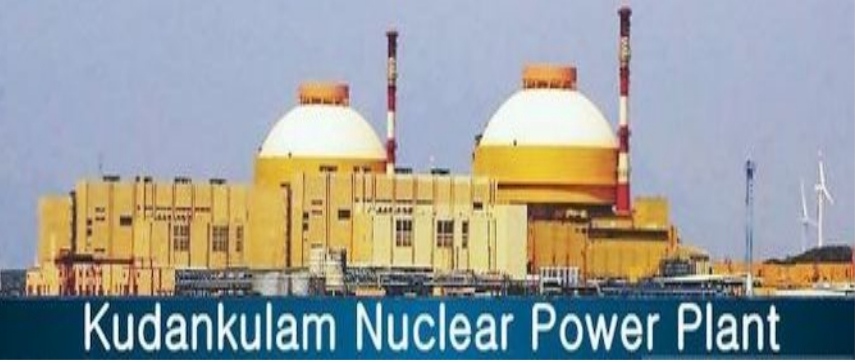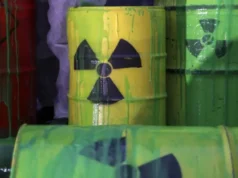Nuclear Energy : A Critical Pillar enriching India-Russia Relationship

India-Russia relations have not only stood the test of time but have also seen an increasing convergence of interests in the post-cold war era upheaval
In the field of civil nuclear energy, the scope of India-Russia cooperation is constantly gaining momentum. Although culture, defence, anti-terrorism cooperation, and space have historically been the cornerstones of the Indo-Russian strategic partnership, civil nuclear energy is playing a critical role in shaping India and Russia’s bilateral ties.
It has been underlined that India and Russia share a time-tested relationship. Russia has been one of India’s closest allies for the past six decades. Every passing year ensures that the relationship remains as strong as it was in the past. Over the years, India and Russia have preserved a strong civil nuclear energy partnership.
Even during the Cold War, the India-Russia relationship was unique, distinctive, and multifaceted. Historically, whether it was a political emergency, economic crisis, or technological assistance, or to develop basic industrial infrastructure, or whether India needed to back up its diplomatic position at the United Nations, Russia has aided India in a multi-dimensional way.
Every country has a character that reflects in its ideology, outlook, and approach towards other countries in terms of foreign policy. Based on these characteristics, the nation constructs its identity. Geopolitical blocs and coalitions are formed as a result of these constructs. India-Russia relations have not only stood the test of time but have also seen an increasing convergence of interests in the post-cold war era upheaval.
The Russian nuclear industry is looked at as an undisputed leader in advanced nuclear technology, offering cutting-edge engineering and design solutions in the domain of advanced nuclear reactors and nuclear fuel manufacturing. India began its three-stage nuclear power program to meet the country’s defence and energy needs after independence. India has made significant progress in the area of nuclear energy since then. Going ahead, Russia emerges as a crucial partner for pushing India’s nuclear energy potential.
Furthermore, both countries have a shared vision in mind when it comes to the theme of ‘Multi-Polar Asia. Russia validates its worth by stretching its helping hand to India, assuring long-lasting friendship. Since 1947, Russia has contributed to the political and economic strengthening of India through various means. This assistance has been vital to India’s overall growth in the modern age.
Over 60 percent to 70 percent of India’s armed forces are equipped with arms of Russian origin. As part of the Make in India initiative, Russia is also a key partner for the manufacturing of defence equipment in India.1 It is undeniable that Soviet military assistance aided India’s rise to prominence as a major military force in Asia. The buyer-seller partnership between India and Russia has evolved into a strong security collaboration over the last decade.
The defence collaboration between India and Russia entails joint research and development, design, and defence manufacturing. Both countries have developed a formalized system for technology transfer and joint production. In the last few years, several significant agreements have been reached. These facts highlight the significance of Russia from an Indian outlook.
Along with the defence industry, the nuclear energy sector is advancing newer dimensions to the India-Russia cooperation. India’s position on nuclear energy, which is to use it for peaceful purposes, makes it a trustworthy consumer of nuclear energy. Since independence, India has demonstrated its commitment to using nuclear energy only for sustainable development. India’s policy commitment encourages countries like Russia to support India with smooth technology transfer and advanced nuclear energy projects.
In Russia, the nuclear energy sector is seen as a top national policy priority, enabling Russia to emerge as the undisputed leader in advanced nuclear technology. To that effect, India can further its nuclear energy collaborations with Russia to rope in best global practices on Indian soil. India-Russia joint endeavour in this regard is the Kudankulam nuclear power project. Furthermore, Russia has announced that it aims to develop more than 20 nuclear power plants in India over the next 20 years. 2
Nuclear power companies all over the world are now following sustainable and renewable energy principles. For more than 75 years, Russia’s State Atomic Energy Corporation, ROSATOM, has been at the forefront of nuclear power technology. Many nations, including Egypt, Turkey, Bangladesh, Finland, and others, consider modern Russian designs, such as the latest VVER 1200 generation 3+, to be among the safest in the world.
Nuclear cooperation between the two countries is also contributing to advance the government’s “Make in India” initiative, as some critical components are gradually being manufactured in India. India’s vision of Atmanirbhar Bharat aims to transform the country into a global manufacturing hub. Consequently, as India’s manufacturing capacity increases, so will its energy demand. According to data, India’s nuclear power generation capacity of 6,780 MW is expected to be increased to 22,480 MW3. Sustainable energy sources, such as nuclear power, would be critical in realizing a comprehensive Atmanirbhar Bharat’s vision of becoming a global manufacturing hub. Russia’s decades of experience in developing sophisticated nuclear technology, along with years of strong India-Russia bilateral ties, positions Russia as a suitable partner for boosting India’s growing civil nuclear energy demands.



